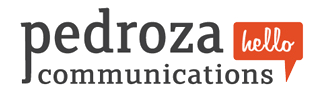Dealing with a communications crisis is challenging for any leader. State schools are particularly exposed for a number of reasons:
- They receive public funding
- Their performance is reported publicly – Ofsted judgements, exam results, and school performance tables
- They need to keep children safe for a large proportion of the day (about 1,300 hours per year)
- Parents, carers, grandparents and the general public have strong opinions on education and the role of schools
Even schools that are Outstanding, have brilliant results and parents queuing to get their children in, face issues and challenges which will attract public interest and newspaper headlines.
When a crisis hits one of the things that regularly gets overlooked is who is going to speak to whom. Being clear on roles can mean the difference between containing a crisis and escalation. Whatever the situation, these are the essential roles that need to be delegated.
First point of contact
In a crisis, how an incoming enquiry is handled can make all the difference (think about some of the times you’ve had poor customer service and how you felt). In a school it is likely that this will be your front of house/office staff. Make sure they are briefed and understand what you want them to do. Ensure phones are covered at all times. Ensure email is monitored every 15 minutes.
When dealing with media enquiries a message should always be taken and staff must avoid getting involved in any discussion about the issue.
Media spokesperson
It is essential to agree who should speak to the media. It is likely it will be the Chair of Governors or Head Teacher or Principal. Consider who will come across clearly, who has authority, and who can remain calm even when asked difficult or challenging questions.
The media spokesperson should be media trained and have experience of speaking to journalists, and giving TV and radio interviews.
The media are also keen to get the perspective from parents and students. It is sensible to identify a parent governor who can speak to the media. Also, if you are a secondary school, identify two students who could also speak to the media if required is useful.
Make sure anyone speaking to the media is well briefed and can handle sticky questions if asked.
Parent meetings
Dependant on the crisis, you may decide to coordinate a number of parent meetings. Generally the head teacher or principal will lead on these, but consider asking the Chair of Governors and a parent governor to attend as well. They can provide support and also offer a different perspective on the issue which can be very useful.
When a crisis hits there is often little time to think through detailed plans. However, making sure you know who is speaking to whom and what they are saying can make an enormous difference to the impact of a crisis and its long term effect on the school.
Get free education marketing tips and advice
Our go-to email resources are for anyone looking to reach an education sector audience. Get inspiration and practical help on everything from pitching your story to journalists, to engaging influencers to spread the word, to securing TV coverage.
